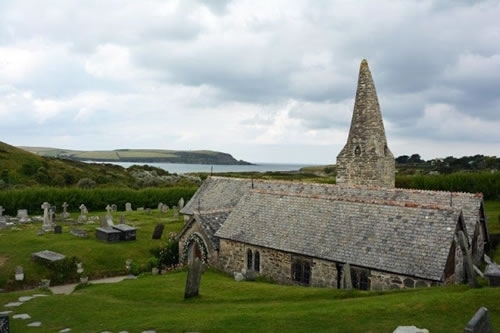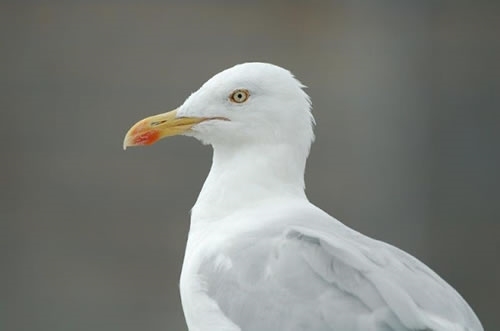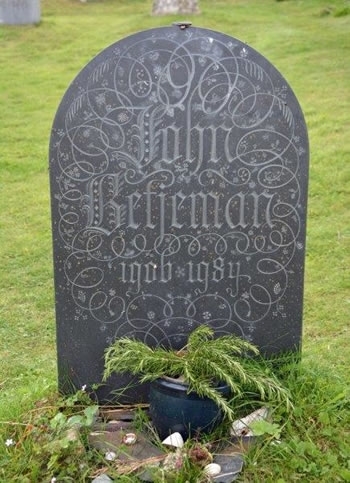This blog post originally appeared on Peter's 'Fresh from the Field' blog on 15th September, 2015.
I spent last week holidaying down in sun-soaked north Cornwall and for once this summer, I’m not joking as the weather was truly wonderful!
 St. Enodoc church with its little bent spire, is situated in the heart of Betjeman country
St. Enodoc church with its little bent spire, is situated in the heart of Betjeman country
I always take the opportunity when I am in Cornwall to dig out some of John Betjeman’s writings, as I have always loved his take on life and of course his adoration of Cornwall means that I am often looking across the very landscape that he is describing.
I was browsing through the pages of his best known book “Summoned by bells” when I came across a line that jumped out at me. “Childhood is measured out by sounds and smells and sights, before the dark hour of reason grows.”
I suspect the quote means that the way a child understands things is very basic, using just his or her senses. But Betjeman always seemed to be amazingly aware of these senses even into adult life, and I think maybe he was also suggesting that “most” folk, having been aware at a young age of these important little things in life, are far too busy being important and grown-up to notice them anymore.
Take the Herring gull for instance! Surely their raucous call throughout the day is one of the key essences of being at the seaside, even if many people find them rather annoying or even frightening as they sit next to you eyeing up your ice-cream!
I had only been in Cornwall for only half an hour or so when I started to realise that there were hardly any gulls around. Normally they would be on every telegraph pole, chimney and any other vantage point, watching your every move in case an edible morsel might be discarded.
I eventually found some in Padstow and Port Isaac, but I estimate that there were only around 20% of the numbers that I observed just a year or so ago. Now, it might be that they had temporarily moved off to better feeding grounds, but as far back as I can remember into my very young childhood, chuck a piece of bread onto a Cornish lawn, and it would only be a matter of seconds before it was snatched up by a flock of squabbling gulls.
 The Herring gull, not loved by everyone, but such a part of any visit to the seaside.
The Herring gull, not loved by everyone, but such a part of any visit to the seaside.
This year however, there were no gulls observing the front lawn from on high. In fact I hardly heard that magical seaside call at all. I spoke to a few locals, asking if they had noticed the decline and suggesting that perhaps they might have been quietly culled. But nobody had noticed any change – perhaps because “the dark hour of reason” now dominates their lives.
 Betjeman's final resting place
Betjeman's final resting place
I visited John Betjeman’s grave at the delightful little St. Enodoc church – a church that was once buried beneath the sand dunes, but was eventually dug out and restored. He loved this place and spent many, many hours “pootling” around the locali
ty, listening, observing and smelling things, so that he could return home to write about them.
I do hope that the common Herring gull (now “red listed” due to recent declines) continues to deliver its boisterous call over St. Enodoc church, because there is certainly one person in its graveyard that would not only notice its demise, but would sorely miss that quintessential seaside sound.
Subscribe to our free newsletter for blog updates
Get Peter's latest blog posts delivered to your inbox - click here to subscribe